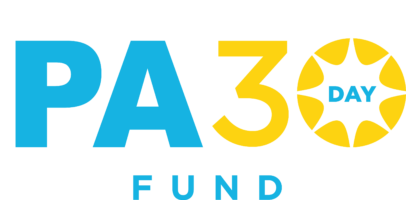Forgivable loan program helps Pa. businesses through coronavirus pandemic
In the early days of the coronavirus pandemic, Jeff Bartos found himself struck with a range of emotions.
“Like so many, I was a little depressed and sad. I was frustrated, angry and annoyed,” he said.
It didn’t help that he had to temporarily furlough employees from his Philadelphia-area real estate development company. It was grim.
Then he got a call from an old friend who started a program in Virginia to help small businesses struggling during the pandemic. His friend recommended that Bartos do the same thing in Pennsylvania.
“How do you want remember this period of time when you look back 10 years from now?” was the question his friend posed to him. Do you want to remember feeling sad and complaining? Or do you want to do something about it and help people?
“That really got to my heart,” said Bartos, who was the Republican lieutenant governor candidate in 2018. “And that was it. I said, ‘I’m in. What do I need to do?”
And that’s how the PA 30 Day Fund got started.
He started organizing the new non-profit in April, and as of Tuesday morning, the PA 30 Day Fund has awarded 465 small businesses in Pennsylvania with forgivable loans of $3,000, totaling $1.4 million.
The funds have come from donors – private individuals and other businesses – which have given anywhere between $3 and $1 million.
It’s a small loan, but it’s one he said can mean the difference between staying open or closing for good during the pandemic. It’s meant to bridge the financial gap for a month for meeting payroll, rent, insurance or any other business expenses.
Small businesses can apply on the fund’s website.
It’s about a 10-minute application, and it requires business owners to submit a short video, which gives the board a glimpse of the business, and its impact on the community, Bartos said.
To be eligible, businesses must have been open for at least one year and must have between three and 30 employees.
Bartos, Maia Comeau of Carlisle and a volunteer board around the state meet virtually quite often as they review the applications that have come in.
About 70 volunteers are helping out. Many of them are University of Pennsylvania students in the schools of business and law who review the applications. Each is reviewed by two students and a student coordinator before recommendations are made to the board of directors, which ultimately decides how to award the funds, they explained.
For them, it has become a labor of love.
“We wish we could fund every company,” said Bartos. “The ones we have funded, we fall in love with these businesses. We hear their stories. They’re remarkable women and men who have doubled down and risked everything to start these companies.”
Comeau said the best part of this effort is calling the businesses to let them know they have been approved for funding.
“When I made my first call, the business owner burst into tears,” she recalled. “Pennsylvanians are resilient and caring for one another. The old slogan ‘You’ve got a friend in Pennsylvania’ really rings true.”
One of those businesses she called with good news recently is located in her backyard in Carlisle — Georgie Lou’s Retro Candy.
It’s a small, family run candy store, said owner Stephanie Gilbert, and they have been closed since the beginning of the pandemic.
Reopening the actual store now is something she can’t do with family members who have pre-existing conditions, but they are taking orders through their website and doing deliveries several days per week. She hopes to start curbside pickup soon.
“For small businesses, it has been a nightmare,” she said.
The state and federal programs that are out there have helped many businesses, but the turnaround time is incredibly slow, she said. It’s time that many small businesses don’t have. One of the benefits of the PA 30 Day Fund, she noted, is the quick turn around time. She applied on a Tuesday and she had the funding the following Tuesday.
“That $3,000, for us, means another month of overhead. We can pay our rent, pay our utilities, pay our website costs,” she said. “For a small business, another month is a big deal.”
It’s another month of staying open.
The fund is still taking applications, and plans to do so as long as needed, or as long as they have the money.
And Bartos added the loans are forgivable. What that means, Bartos explained, is more of a “pay it forward” system.
“If you get to a position down the road where you to pay can pay it back, you can send it back to us and tell us how you want us to use it,” he said. “Or you can pay it forward and help another business in your community and tell us about it.”
Bartos hopes it can grow into a movement, with small businesses helping each other, and helping the community as a whole.


